Although we may not realize it, the hungry may live just down the block, or in the vehicle parked around the corner.
One in eight Minnesotans, including 20 percent of children, don’t know where their next meal is coming from, according to Second Harvest Heartland, a food relief group in the Twin Cities. In response to this critical problem, food shelves throughout the area provide free food to individuals and families. Smaller food shelves are often staffed entirely by volunteers. In Mankato, the ECHO Food Shelf also relies heavily on volunteers who work with a staff of three full-time and three part-time employees to help feed hungry people and families. (ECHO is an acronym for Emergency Community Help Organization.)
Registration with ECHO is as simple as going online to echofoodshelf.org to answer a few questions or applying over the phone at (507) 345-7508. ECHO serves Blue Earth County and North Mankato, but does not turn away anyone needing food, according to Sara Diel, ECHO’s assistant manager.
We had 130 to 150 regular volunteers pre-pandemic, which dropped to 80 since COVID.Deisy De Leon Esqueda
The need for volunteers is always front and center. ECHO’s manager, Deisy De Leon Esqueda, explained, “We had 130 to 150 regular volunteers pre-pandemic, which dropped to 80 since COVID.” The shopping process also has changed in response to the COVID-19 pandemic. Now, instead of a volunteer accompanying an individual or family as they put groceries from the shelves into a shopping cart, volunteers fill orders that have been received from clients online or on the phone. The clients then pick up their order at the door, at a set time, with the groceries wheeled to their vehicle in a cart. ECHO staff and volunteers all wear a face mask and encourage clients to do so.
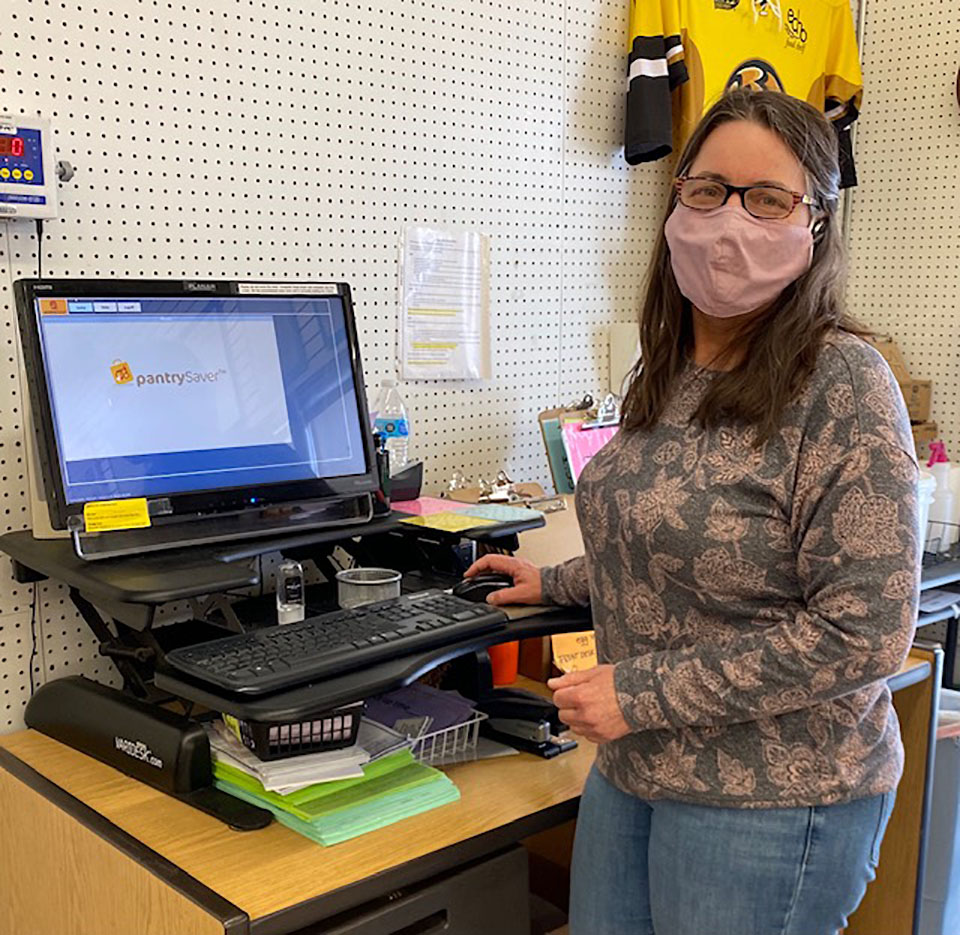
Well established service
ECHO has provided hungry people with food since opening its doors in 1983, with social workers and local media helping make people aware of the food shelf.
ECHO’s story began with a 1982 house fire, when food donated to help the family was stored in a basement. From that occurrence sprang the idea of a food shelf. A group of like-minded people came together in a meeting at the Lincoln Community Center, resulting in a board being formed and ECHO incorporated as a non-profit organization. The food shelf originally was housed at Lincoln but was moved to 614 North Second Street after a fund-raiser provided $45,000 for purchase of the building.
In 2011, following more fund-raising efforts, ECHO moved to its current location at 1014 S. Front Street, which provides parking spaces for volunteers and sufficient storage and display shelving. The freezer holds a selection of meat—ground beef, steaks, chicken, pork and, often, fish. Refrigerators offer not only milk and eggs, but also cheese, butter, and yogurt, as well as pre-made salads and bags of salad greens. In another area, cleaning products, personal care items and paper products are stocked.
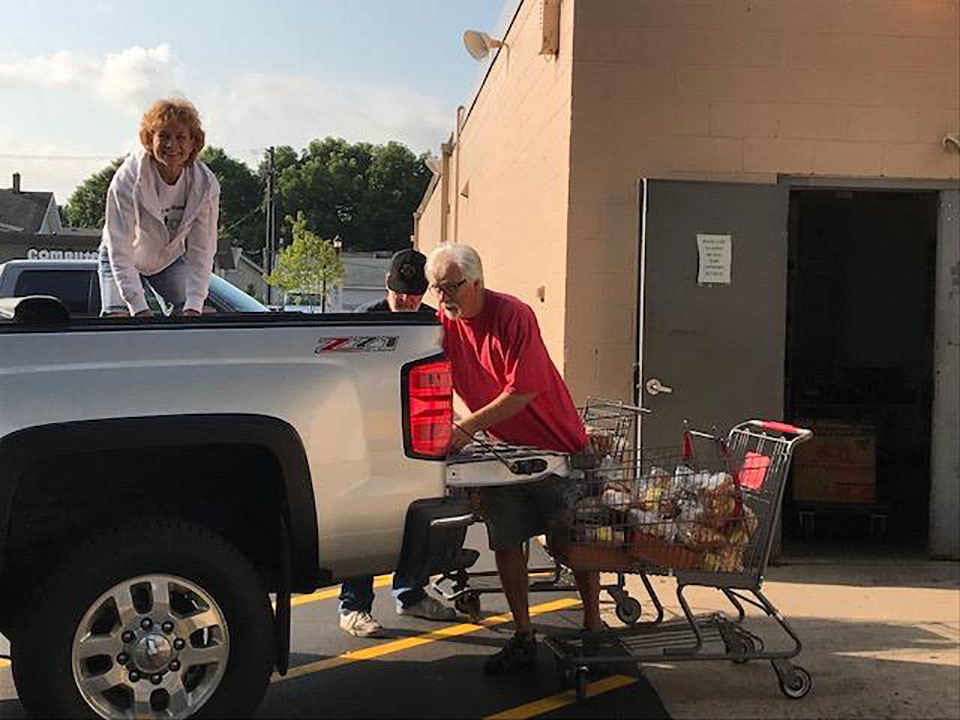
Driven by donations
Food and non-food items are donated regularly by the Walmart Distribution Center as well as supermarkets. The donations are picked up and shelved—all by volunteers. Diel explained, “It’s food rescue of perishables, such as dairy products, eggs, vegetables and fruits. The meat is frozen by each store before being donated. We purchase non-perishable food from Second Harvest Heartland, and of course, people donate food by simply dropping if off.”
Being able to provide healthy food is important to me. We’ve come a long way from giving a box of canned goods to a client.Sara Diel
She continued, “We get lots and lots of food donated by food manufacturers’ trucking companies in loads that have been refused by a local distribution center, perhaps because there is a discrepancy in the numbers—too large a delivery—so we receive a few pallets. Volunteers pick up bread and other baked products from a local bread warehouse. And food drives are not a small thing. Boy Scouts, postal workers, a stuff-a-truck drive at schools all help us. Some churches have a box for non-perishable donations that they deliver to us. Being able to provide healthy food is important to me. We’ve come a long way from giving a box of canned goods to a client.”
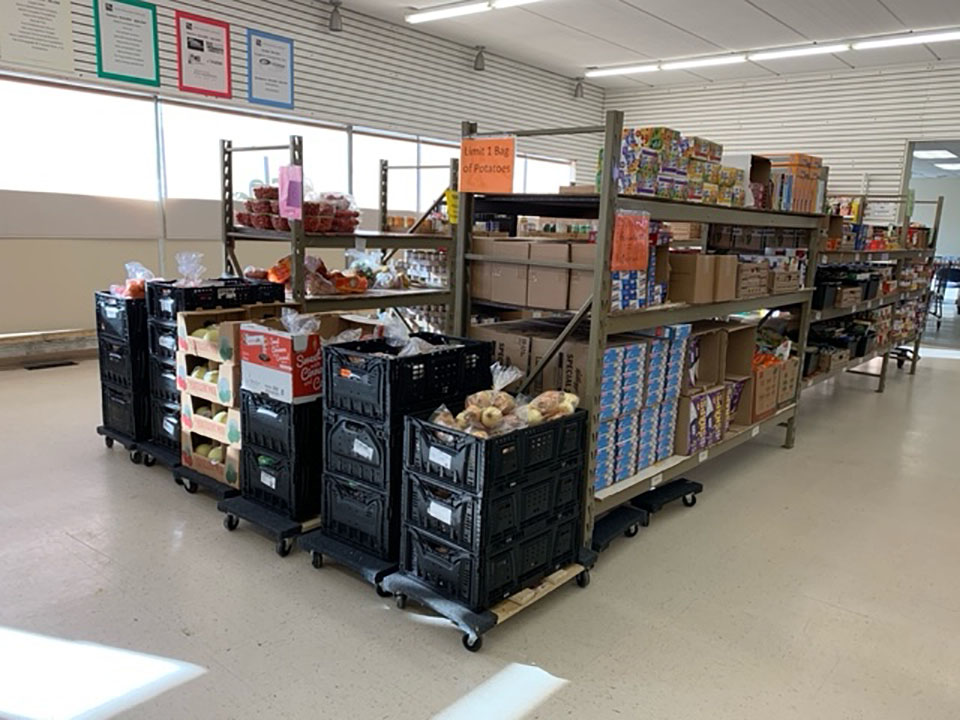
A varied clientele
Diel said food distribution includes monthly visits from regular clients and frequent visits from people who have no permanent residence and, therefore, no food storage space. She explained, “People come to the door, and we put together a package of ready-to-eat food that will fit into a backpack. Some come in once or twice a week, some less often. We have a lot fewer in winter when shelters are open.”
Each November, ECHO offers a Thanksgiving basket to every individual client or family, including those served by the ECHO Delivers Outreach Program, in which volunteers deliver food to people unable to come to the food shelf. Thanksgiving baskets include a turkey or a ham (client’s choice) with all the usual trimmings. Last year, more than 1,100 “baskets” (actually boxes) were distributed in two-and-a-half weeks.
In 2020, ECHO fed families in 3,520 households in a total of 21,177 visits. ECHO distributed more than two million pounds of food to 71,092 people including 29,309 children and 3,472 seniors.
A summer feeding program provides additional food to families with school-age children who would usually eat at least one meal a day at school.
Although the COVID-19 pandemic changed the process of getting food from ECHO, it did not curtail the food shelf’s ability to fulfill its mission of feeding the hungry.
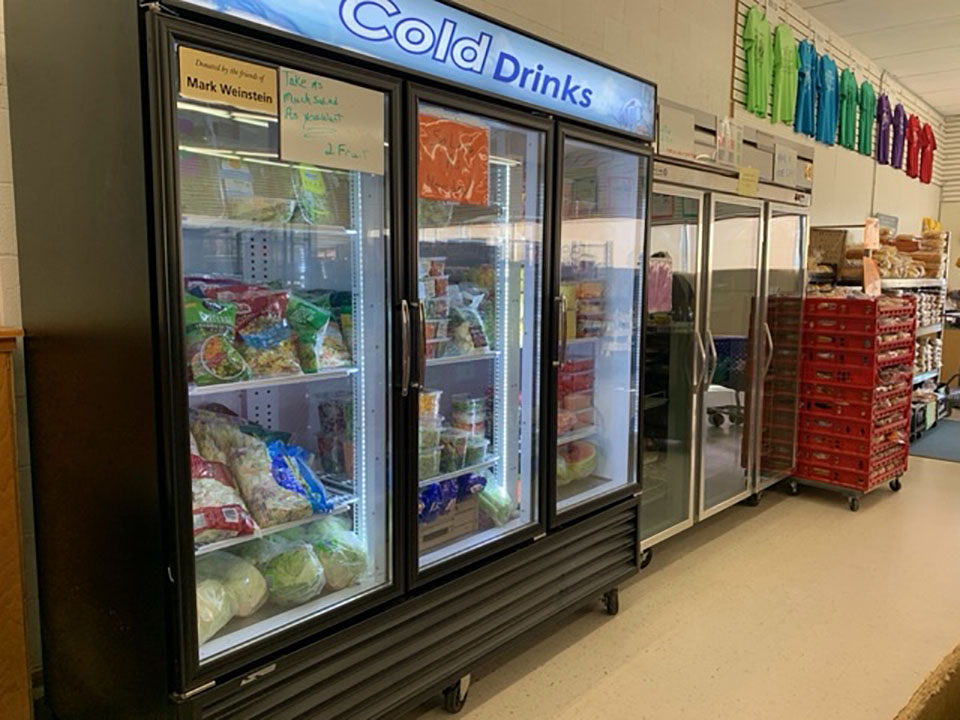
Board member and volunteer William Broussard explained in a January letter he sent to volunteers and donors. “I can’t say enough about how remarkable ECHO’s volunteers and supporters are,” he wrote. “They made sure that so many people in this community could be sustained and supported. Generous individual, small business and non-profit organizational donors gave with unprecedented generosity. Staff, with the help of many indefatigable volunteers, kept the lights on so that we never had to close our doors due to lack of staffing.”
In 2020, ECHO fed families in 3,520 households in a total of 21,177 visits. ECHO distributed more than two million pounds of food to 71,092 people including 29,309 children and 3,472 seniors.
Staff have a strong sense of mission
ECHO’s staff appreciate the many volunteers who make ECHO’s mission possible. Manager Daisy DeLeon Esqueda said, “The most gratifying aspect is to be able to serve our community, to meet wonderful individuals who share the same mission.” She has been with ECHO since 2003, when she was hired with grant funding as an office assistant for her bilingual ability. A few years later, she joined Ryan Ihrke as co-manager and eventually became the sole manager.
ECHO’s assistant manager, Sara Diel, volunteered at ECHO while a student a Minnesota State University, Mankato. When she became an employee, her first job was answering the phone. Years later, she brought her daughter to ECHO as a volunteer because, Diel said, “I wanted her to be a part of the community of good people doing good things.”
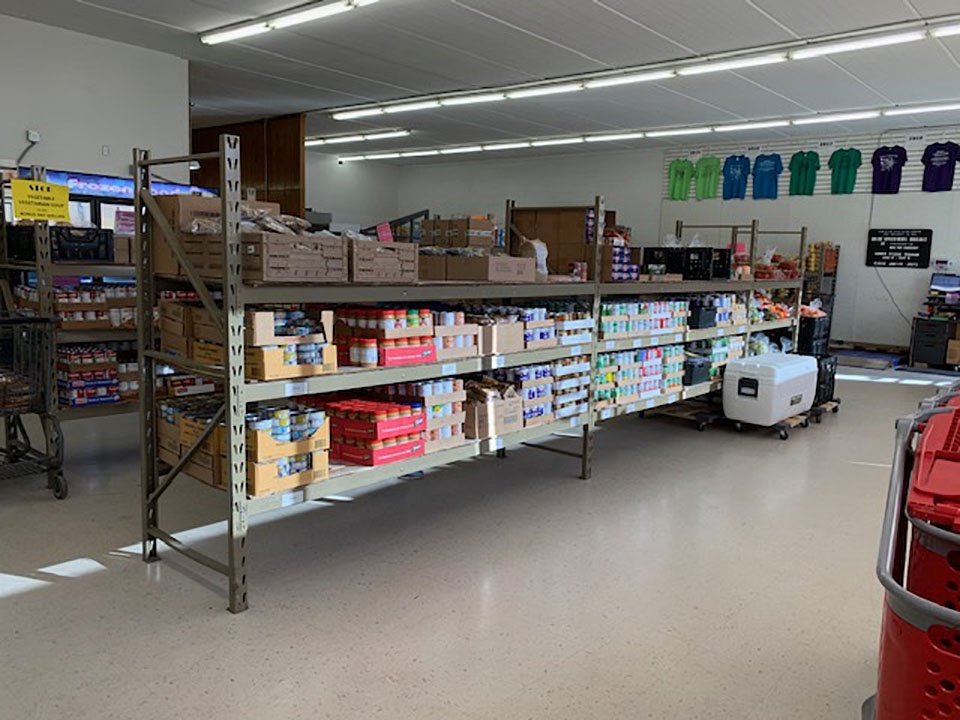
Although Diel does not directly apply her Bachelor of Science degree in dietetics to giving specific advice about food choices, she has been known to say, “This food is high in Vitamin A.” In addition, she said, “I can use my knowledge of food in how we design the shopping area.”



